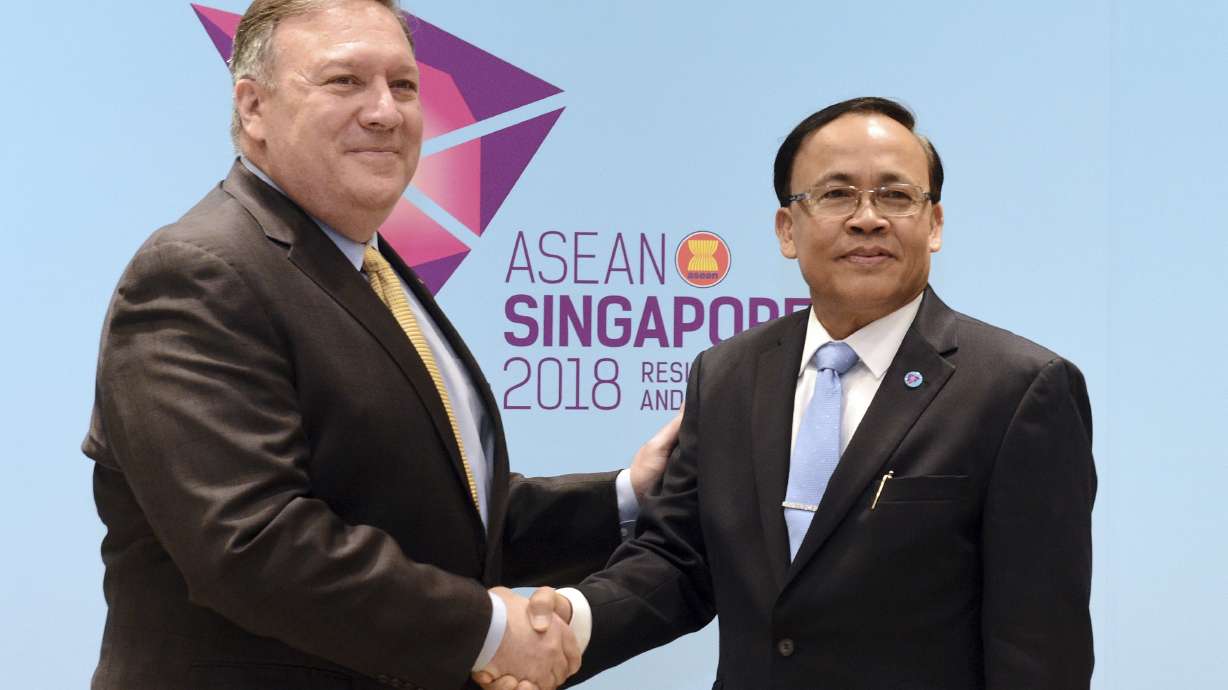Estimated read time: 2-3 minutes
This archived news story is available only for your personal, non-commercial use. Information in the story may be outdated or superseded by additional information. Reading or replaying the story in its archived form does not constitute a republication of the story.
SINGAPORE (AP) — U.S. Secretary of State Mike Pompeo called on Myanmar on Saturday to immediately release two Reuters journalists held on charges of possessing secret documents.
Pompeo said in a tweet he raised U.S. concerns about the two reporters "detained in Burma for doing their job" during a meeting with Myanmar's Foreign Minister Kyaw Tin on the sidelines of a regional gathering in Singapore.
"They should be released immediately," Pompeo tweeted.
Kyaw Soe Oo and Wa Lone have pleaded not guilty to the charges against them and said they were framed by police, apparently because of their reporting on the brutal crackdown by security forces on minority Rohingya Muslims in Myanmar's Rakhine state. About 700,000 Rohingya fled to neighboring Bangladesh after the crackdown began last August.
They face up to 14 years in prison if convicted.
Their lawyer, Than Zaw Aung, told reporters after Monday's court session in Yangon that documents presented as prosecution evidence were neither secret nor sensitive.
Several additional witnesses are to testify this month, after which the lawyers will deliver their closing arguments and the judge his verdict. The court so far has held about 30 sessions over seven months.
Kyaw Soe Oo said Monday that he testified he did not know where the documents on his phone came from, and he had conducted his work according to ethical standards. He said he was not allowed to meet lawyers or family members during his two weeks of interrogation and was made to kneel for about four hours while being questioned.
Wa Lone, who was cross-examined last week, said the interrogation process was abusive.
"We were not allowed to sleep. The weather was too cold at that time. We were handcuffed," he said.
Copyright © The Associated Press. All rights reserved. This material may not be published, broadcast, rewritten or redistributed.









